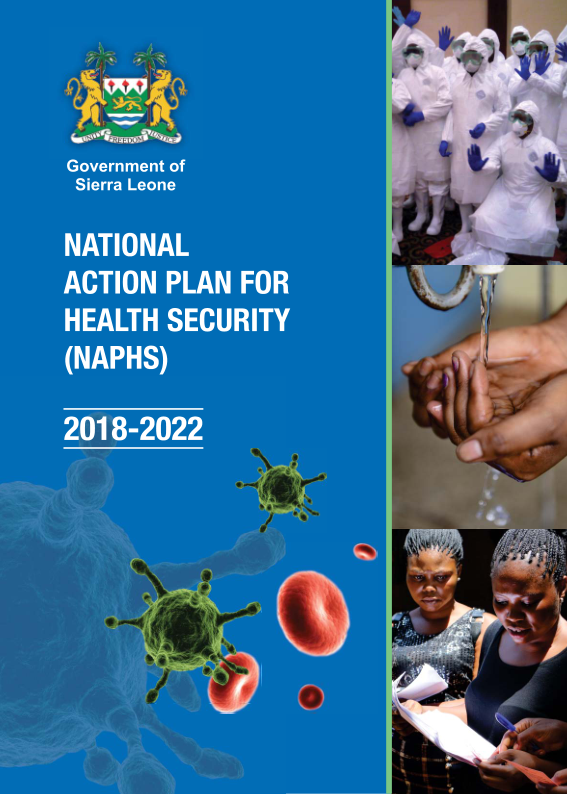By Fatmata Jangbe
The Sierra Leone National Action Plan for Health Security (NAPHS) is based on the recommendations of the 2016 Joint External Evaluation (JEE). The JEE is a voluntary, collaborative and multi-sectoral process to evaluate country’s capacity to prevent, detect and rapidly respond to public health risks occurring naturally or due to deliberate or accidental events.
The JEE process helps countries identify the most critical gaps within their human and animal health systems, to prioritize opportunities for enhanced preparedness and response, and to engage with current and prospective partners and donors to effectively target resources. Sierra Leone was among first African nations to accept to undergo the JEE process which was conducted in between 31st Oct – 4th November.
Some of the key areas for improvement that were identified through the process of JEE included; the need for revision of public health laws and legislation, a budget line for IHR, accelerate the implementation of the One Health approach, development of a comprehensive multi-hazard National Public Health Emergency Preparedness and Response plan, strengthening surveillance at points of entry (PoEs), improve coordination and collaboration between human and animal health laboratory systems, Improve capacity (human resources, laboratory) for the detection and response to chemical and radiation hazards among several other key priorities.
Stakeholders, with broad representation, and using a one-health approach, reviewed the NAPHS so as to prioritize activities planned in the 2018-2022 implementation period. A resource mapping exercise was carried out, this allowed the country to have an overview on the available or potential resources to support building country capacities for health security.
Implementation of this plan will enable the country to: prevent the likelihood and reduce the consequences of outbreaks and other public health hazards; build national capacities for early detection and effective response to public health emergencies and other events of public health concern; foster all-sector partnerships for effective prevention, detection and response to public health emergencies and other events of public health concern; establish a sustainable financing strategy for the attainment of national health security. Overall, this will enable the country to strengthen core capacities required under IHR 2005 leading to enhanced health security of the country and the sub region.
The overall cost of implementation of this plan is about $291 million, the high-prioritized activities for implementation in year one and two will cost about $ 50 million. It is envisaged that the health sector development partners will be enthusiastic to supplement domestic funding for the implementation to be a success. WHO will continue to coordinate a platform for donors and partners to share, inform, and collaborate in order to strengthen Sierra Leone IHR (2005) capacity and increase our contribution to global health security.




